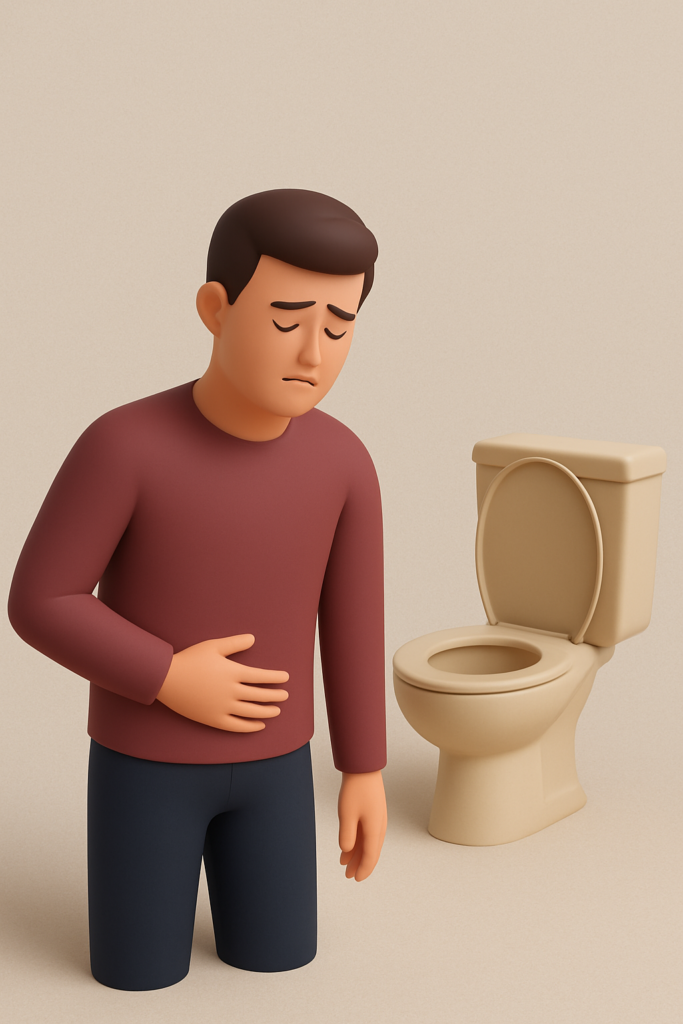Stress affects the body in many unexpected ways, and one of the most common yet often ignored responses is the sudden urge to use the bathroom. Many patients report rushing to the toilet before meetings, during exams, or in moments of emotional pressure. While this can feel confusing or embarrassing, the underlying cause is deeply rooted in the way stress interacts with the urinary system.
Understanding this connection can help patients recognize what is normal, when to seek help, and how to manage symptoms effectively.
How Stress Affects the Urinary System
The urinary system is highly sensitive to changes in the nervous system. When you’re stressed, the brain activates the fight or flight response, which triggers a cascade of physiological reactions. The bladder and pelvic floor muscles are especially affected.
Here is what happens internally:
- Overactive Bladder Response
Stress stimulates the sympathetic nervous system. This can cause sudden bladder contractions, leading to urgency or increased frequency. - Pelvic Floor Tension
Stress and anxiety often cause involuntary tightening of the pelvic floor muscles. Tight muscles can create a constant urge to urinate, difficulty emptying the bladder, or even urinary leakage. - Heightened Sensitivity of the Bladder
Stress can make the bladder more reactive, meaning sensations that would normally be ignored now feel urgent. The result is frequent trips to the bathroom with only small amounts of urine. - Hormonal Influence
Stress hormones such as cortisol can alter fluid balance and bladder function. In chronic stress, these hormonal changes may worsen urinary symptoms over time.
Common Stress-Related Urinary Symptoms
Patients may experience a variety of symptoms, including:
- Frequent urination
- Sudden urinary urgency
- Urgency without significant urine output
- Nocturia (frequent nighttime urination)
- Pelvic discomfort or pressure
- Urinary leakage, especially during anxiety episodes
If these symptoms occur mainly during stressful moments, they may be linked to emotional triggers more than physical abnormalities.
When Stress Mimics Urologic Conditions
Stress-related urinary symptoms can resemble other conditions, such as:
- Overactive bladder (OAB)
- Urinary tract infections (UTIs)
- Interstitial cystitis
- Pelvic floor dysfunction
A proper evaluation by a urologist helps rule out infections or structural issues. If symptoms persist but no medical cause is found, stress may be the primary factor.
Managing Stress-Induced Bathroom Urges
Urologists often recommend a combined approach that supports both bladder health and mental well-being.
1. Bladder Training
Structured timing of bathroom visits can help retrain the bladder to tolerate normal intervals.
2. Pelvic Floor Relaxation Therapy
Instead of Kegels, many stress-related cases require pelvic floor relaxation techniques, guided by a physiotherapist.
3. Stress Reduction Techniques
Deep breathing, meditation, progressive muscle relaxation, and mindfulness can significantly reduce urgency.
4. Diet and Fluid Management
Avoid bladder irritants like caffeine and artificial sweeteners during periods of high stress.
5. Adequate Hydration
Drinking too little can concentrate the urine and irritate the bladder, worsening symptoms.
6. Cognitive Behavioral Therapy (CBT)
Useful when anxiety or emotional triggers contribute consistently to urinary urgency.
When to See a Urologist
Patients should seek professional evaluation if they experience:
- Persistent urinary urgency
- Frequent urination disrupting daily life
- Nighttime bathroom trips affecting sleep
- Pain or burning sensations
- Leakage or incontinence
- Symptoms not improving despite lifestyle changes
An accurate diagnosis ensures that infections, bladder disorders, or other medical conditions aren’t mistaken for stress-related symptoms.
Final Thoughts
The mind and bladder are more connected than most people realize. Stress can trigger or worsen urinary urgency, frequency, and discomfort, even in otherwise healthy individuals. Recognizing this connection is the first step toward effective management.
With proper guidance from a urologist, combined with stress-management strategies, patients can regain control of their bladder and feel more confident in daily life.

